Starting from Nothing: How to Build an Internet Marketing Campaign.
Take a look at our Internet Marketing Book.
Building an online presence and marketing plan can be a difficult task, but it does not have to be. 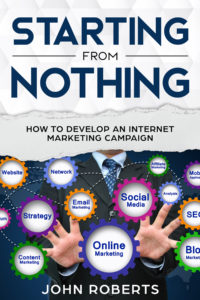 Understanding what Marketing and Branding are is key to the building of your Marketing awareness. Converting this awareness to an online presence is key to your product or services success. We understand how Online Marketing works and want to help you learn the steps you need to take toward brand awareness and a successful Marketing Campaign. Our book will introduce you to our Marketing process in an easy to understand way.
Understanding what Marketing and Branding are is key to the building of your Marketing awareness. Converting this awareness to an online presence is key to your product or services success. We understand how Online Marketing works and want to help you learn the steps you need to take toward brand awareness and a successful Marketing Campaign. Our book will introduce you to our Marketing process in an easy to understand way.
How to Start a Money Making Blog: The Best Methods, Tricks and Steps for Successful and Profitable Blogging
Do you like to write? Are you already a Blogger? Are you looking for ways to make money from home either as a side income or as a full time income? Blogging is different from having a 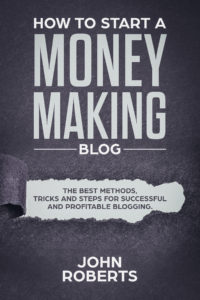 blog. Having a blog might just be for fun, but a blogger looks at it from an income generation standpoint. How much can you make? In all honesty that is entirely up to you. Will you put forth the effort to be a top blogger? Do you know how to monetize your blog?
blog. Having a blog might just be for fun, but a blogger looks at it from an income generation standpoint. How much can you make? In all honesty that is entirely up to you. Will you put forth the effort to be a top blogger? Do you know how to monetize your blog?
When it comes to blogging you should follow your passion and build a platform you can educate and entertain your readers. Once you decide what your passion is we can teach you to build your blog, acquire readers and ultimately turn your blog into an income generating business.
We wrote this book with both people new to blogging as well as those who already blog but want to learn to make more money. This is NOT for people seeking a way to get rich quick without putting forth any effort.
YouTube Play Book: The Quick Guide to Growing your Following and Making Money
Building and growing a YouTube channel can be difficult but it doesn’t have to be. We want to give you a plan to follow that will get you started down the right path. No this is not an 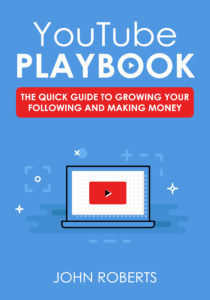 overnight path but with continuous effort, practice and relentlessness you can build a YouTube channel that brings in thousands per month. We will help you get started on that process and teach you the best ways to monetize your Channel right from the very first video!
overnight path but with continuous effort, practice and relentlessness you can build a YouTube channel that brings in thousands per month. We will help you get started on that process and teach you the best ways to monetize your Channel right from the very first video!
Learn from our mistakes and find out what works without the trail and error most YouTube channel producers go through. Yes, there will still be some experimentation before you begin to perfect your personal channel success story but we can get you kick started in the right direction.
Social Media Marketing: Everything you need to Know to Grow your Business
Do you have a Business? Wondering how to get more customers? If your answer to this is yes, and it should be, regardless of what your business revenue currently is, then you probably 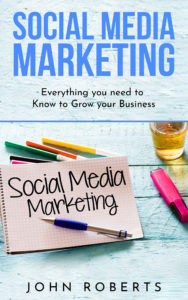 should be thinking of leveraging the power of social media for your business.
should be thinking of leveraging the power of social media for your business.
In this eBook, you’ll learn just what you need to use the power of social media to meet your business goals.
Maybe you’ve attempted to use social media for your business, and you’ve not been getting the best results, or you’re at a loss as at how to begin. I’ve been there, the lingo can be quite frustrating, and those charts can be a pain sometimes. That’s why this eBook was put together. Here, you’ll learn about social media advertising, learn to create a social media marketing plan, how to advertise on social media and have your social media adverts get the maximum reach and convert prospects to customers.
Are you LOOKING for the 3 Best Opportunities to Make Money from HOME?
Well, below are our TOP THREE favorites. They are in no particular order because each of them offer an unique money from home business opportunity with a variety of training and product offerings.
These are our TOP THREE. Check each of them out and let us know what you think. We have NO DOUBT one or more of them will be RIGHT for you! Click on each link for more information.
-
CB Passive Income System
-
Wealthy Affiliate
-
Trade4Profits – This is stock market training. Short cut to profitable trading.
Have you always wanted the Freedom and sense of accomplishment of owning your own business?
Do you want the freedom of being your own boss? Deciding your own schedule? Do you want  to be able to make money from your home, the beach, the mountains or a cruise ship?
to be able to make money from your home, the beach, the mountains or a cruise ship?
Do you believe that an internet based business can provide you with either a secondary source of income, maybe even a primary source?
Are you:
- Wanting to supplement your existing income?
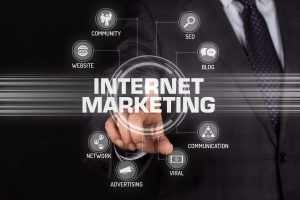
- Add a new revenue stream to help your family, just in case?
- Recently divorced.
- Unemployed.
- In college and need extra income to help pay your bills.
- Retired and looking to make extra money?
- Single mom/dad.
What is holding you back? Let me guess:
- You have been scammed by other sites already. Sites that simply want to take advantage of the fact you want a better life for your family.

- You have no idea how to start and cannot figure out how to find the right kind of help?
- You believe it cannot be done!
- You have tried and failed and now lost hope.
- You do not have the money to pay for some expense program that you are not even sure will work?
This is what you need to be successful:
- A website.
- Training.
- Support of other people just like yourself.
What if I told you that with our program you can.
- Learn how to build a website. FOR FREE.
- Get a website. FOR FREE.
- Learn the basics of internet marketing. FOR FREE.
- Get ideas about what types of businesses you might want to start. FOR FREE.
- Connect with a community of people just like yourself. FOR FREE.
- Can get started in a manner of minutes.
Listen, I have been where you are right now. I have been scammed, confused and frustrated. I read books, listened to high pressure sales pitches about how they can make me successful. Spend money that in truth you do not have to spend to figure out how to build a website, promote a product and start working toward a successful business.
In fact, that is how I ended up here. Finally a solid opportunity that gives you the training and support you need to build a successful business. You still have to do the work necessary to be successful. I am not telling you that you will not have to put forth effort. You will.
Did I mention you can start for FREE! Just sign up. Even get two free websites if you do not already have your own.
We are offering you an opportunity to get the training and support you need to take the next step in your financial success.
You can start:
- For free.
- No credit card needed to sign up for free account.
- No trail period for free account.
- No obligation on your part.
- You have nothing to risk at all.
We have everything you need to start and grow your internet based business. I do not think there is another program like ours out there!
Oh … and it is free to sign up…did I mention that?
Click on this Link to Get Started Today!
INTRODUCTION TO MARKETING
Marketing is the process of teaching consumers why they should choose your product or service over your competitors. If you are not doing that, you are not marketing. It’s that simple! The key is finding the right marketing method and defining the right marketing message to use to educate and influence your consumers.
Companies make the mistake of thinking that marketing is just “one” thing, but marketing is everything that the consumer encounters when it comes to your business, from advertising, to what they hear, to the customer service that they receive, to the follow-up care that you provide.
It’s all marketing and creating the decision within the consumer whether or not to choose you initially or for repeat business. Marketing is often confused with advertising and sales, but it is important to know the key differences.
HOW MARKETING IS DEFINED
On the first day in many Marketing 101 courses, professors often define “marketing” as “all the processes involved in getting a product or service from the manufacturer or seller to the ultimate consumer.” It includes creating the product or service concept, identifying who is likely to purchase it, promoting it and moving it through the proper selling channels.
—–>>> FREE KEYWORD TOOL HERE <<<—–
HOW TO IDENTIFY MARKETING
Marketing is best identified using what are called the 4 P’s or a mix of marketing:
Starting with products, companies have many procedures they must undertake to ensure their products are ready for selling. The first stage is called the “ideation stage,” where the idea for the product is conceived.
Then, marketing departments usually test new product concepts with focus groups and surveys to ascertain interest levels among potential buyers.
If the interest level is high, marketers may then sell products on a limited basis to track sales. If product sales are high, products are then rolled out on a national level.
Before products go to the market, companies must decide what styles, sizes, flavors, and scents they should sell and the packaging designs they should use. Consumers have much input in these decisions.
Price is also tested through focus groups and surveys. Companies must know the optimal price to sell their products to achieve maximum return. One way to determine price is to set it at a level comparable to competitors; that is if the company can recover all associated product expenses and still make a profit. If the company is introducing a new product that has never existed, they must determine how much the consumer is willing to pay for it. Customers will only pay so much for products. Price a product higher, and sales can drop off exponentially.
Promotion pertains to brochures, ads, and information which companies use to generate interest in their products. For more complex concepts, like spas or computers, companies may promote their wares at trade shows. Promotions usually have two purposes: generate leads for sales reps or initiate actual purchases.
Place in marketing nomenclature is the distribution. It is how and where products are sold. Consumer product companies, for example, sell to wholesalers who, in turn, sell to retailers.
In the industrial market, the buying process is longer and involves more decision makers. Some companies also sell products or services on a local level, while others sell nationally and even internationally. All distribution decisions are part of the overall marketing process.
THE PURPOSE OF MARKETING
Business consultant Evan Carmichaels does a great job of identifying the three main purpose of marketing:
- Capture the attention of a target market.
- Facilitate the prospect’s purchasing decision.
- Provide the customer with a specific, low-risk and easy-to-take action.
With these purposes in mind, coupons, sales and even merchandising, or how products are displayed, are parts of the marketing process. Since marketing is the cornerstone of every business, the overall objective is to sell more products or services.
THE DIFFERENT TYPES OF MARKETING
Print, radio, and television advertising are types of marketing, as are direct mail and Internet marketing. Companies that sell via the Internet optimize their web pages, so they appear higher in search engines like Google and Yahoo. Newsletters, press releases, and articles are forms of marketing used to generate leads and orders. Some companies use referral marketing to increase business, where satisfied customers refer others to a particular business.
More recently, social media marketing is becoming a type of marketing that smart companies can’t avoid when it comes to reaching potential buyers, whether it’s advertising on Facebook or posting advice on Twitter with links to a website. All said, marketing is anything that informs interests and gets people to make purchase decisions.
WHY DO YOU NEED MARKETING
For anyone who runs a business of any kind, you’ll know that the true question is not whether we need marketing, but how much do we need? A store owner can have the best products available on the market, and a top notch staff, and they will still flounder financially if no one is able to find their product. Even word of mouth is a form of marketing. It’s impossible to simply put out a great product and expect to get financial rewards. As with any business, it takes money to make money. An investment in marketing is equally, if not more important than, the investments you make inventory and staff.
So what does marketing do to help make money for a business? That’s simple – it exposes people to your product and your brand. How many songs do you know just because you heard them on a Mac commercial? How many times have you found yourself craving a new food you just saw in a Pizza Hut ad? Marketing is an almost subliminal way for businesses to make customers aware of them. There’s a fine line between marketing and spamming, but a cleverly run campaign can make you a household name, sometimes even overnight.
Marketing can also have much less dramatic, but far deeper results than just those in the hit-or-miss channel of viral marketing. SEM or Search Engine Marketing is a proven method of creating a long term marketing campaign that will bring in exponentially bigger results as the campaign ages. Search engine marketing is generally accomplished through use of SEO, or Search Engine Optimization. The basic goal of SEO is to make sure that when someone searches for the product you offer, it’s your site they find.
SEO is far from easy. In fact, it is a very complicated discipline that can take years of study to master. If you are just starting out or you have all you can handle in running your business, it’s best to let an SEO company do all the detailed work for you. SEO can be incredibly tedious, and for most people, the time spent on SEO marketing is better used for other things. A great SEO Company can make certain that your targeted audience sees your site, clicks through to visit your site and ultimately converts, either by purchasing a product, filling in a form, calling you or subscribing to something; whatever the goal of your website actually is.
What happens when you don’t market effectively? When businesses find themselves in financial trouble, they often cut back on their marketing budgets. This hurts any business, because while you’re not marketing, your competition is. That means that fewer and fewer people are finding your product, and instead, they’re becoming loyal customers of your competitor. When you don’t market, the ‘out of sight, out of mind.’ rule applies. You will lose brand visibility, and even clients you had in the past may forget about you. A steady marketing strategy is important if you want to stay relevant, and if you want your customers to have confidence in your brand.
We need marketing to be seen, to be found, to create an interaction that will lead to the ultimate desired goal. Anyone with a product or service cannot expect that “if I build it they will come.” This may have worked in a movie but it won’t work online or offline. Of course, online marketing including website optimization like SEO and the Social Media provide marketers the opportunity to be found at the exact moment in time that the online buyer is actually ready to buy.
The heart of your business success lies in its marketing. Most aspects of your business depend on successful marketing. The overall marketing umbrella covers advertising, public relations, promotions and sales. Marketing is a process by which a product or service is introduced and promoted to potential customers. Without marketing, your business may offer the best products or services in your industry, but none of your potential customers would know about it. Without marketing, sales may crash and companies may have to close
GETTING WORD OUT
For a business to succeed, the product or service it provides must be known to potential buyers. Unless your business is known in the community and have communication with your customers readily available, you have to use marketing strategies to create product or service awareness. Without marketing, your potential customers may never be aware of your business offerings and your business may not be given the opportunity to progress and succeed. Using marketing to promote your product, service and company provides your business with a chance of being discovered by prospective customers.
HIGHER SALES
Once your product, service or company gets on the radar screen of your prospects, it increases your chances that consumers will make a purchase. As awareness becomes a reality, it is also the point where new customers start to spread the word, telling friends and family about this amazing new product they discovered. Your sales will steadily increase as the word spreads. Without employing marketing strategies, these sales may not have ever happened; without sales, a company cannot succeed.
COMPANY REPUTATION
The success of a company often rests on a solid reputation. Marketing builds brand name recognition or product recall with a company. When a company reaches the high expectations of the public, its reputation stands on firmer ground. As your reputation grows, the business expands and sales increase. The reputation of your company is built through active participation in community programs, effective communication–externally and externally–and quality products or services, which are created or supported by marketing efforts.
HEALTHY COMPETITION
Marketing also fosters an environment in the marketplace for healthy completion. Marketing efforts get the word out on pricing of products and services, which not only reaches the intended consumers, but also reaches other companies competing for the consumers’ business. As opposed to companies that have a monopoly on products and services that can charge almost any price, marketing helps keep pricing competitive for a business to try to win over consumers before its competition does. Without competition, well-known companies would continue to sell while lesser known companies or new companies would stand little chance of ever becoming successful. Marketing facilitates the healthy competition that allows small businesses and new businesses to be successful enter and grow in the marketplace.
CONSIDERATIONS
Although marketing is hugely important for a business to succeed, it can also be very expensive. In its first year, a company might spend as much as half of its sales on marketing programs. After the first year, a marketing budget can reach as much as 30 percent–sometimes more–of the annual sales. A marketing program that gives your company the best chance is a healthy mix of different forms of marketing, such as website development, public relations, print and broadcast advertising, design and printing for all print materials, trade shows and other special events.
WHY IS BRANDING IMPORTANT IN MARKETING
There is a lot of confusion around branding, there are multiple definitions, so what is branding? Decades ago branding was defined as a name, slogan, sign, symbol or design, or a combination of these elements that identify products or services of a company. The brand was identified of the elements that differentiated the goods and or service from the competition.
Today brand is a bit more complex, but even more important in today’s world of marketing.
It’s the perception that a consumer has when they hear or think of your company name, service or product. That being said the word “brand” or “branding” is a moving target and evolves with the behavior of consumers, I think of it as the mental picture of who you as a company represents to consumers, it’s influenced by the elements, words, and creativity that surround it.
WHAT SHOULD A BRAND DO?
Branding is not only about getting your target market to select you over the competition but about getting your prospects to see you as the sole provider of a solution to their problem or need.
The objectives that a good brand will achieve include:
- Clearly, delivers the message
- Confirms your credibility
- Emotionally connects your target prospects with your product and or service.
- Motivates the buyer to buy
- Creates User Loyalty
BRANDING AND UNDERSTANDING YOUR CUSTOMER
To succeed in branding, you must understand the needs and wants of your customers and prospects.
It is achieved by integrating your brand strategies through your company at every point of public contact. Think of branding as the expression of who you are as a company or organization and what you offer. Sound difficult? Think of it like this if a brand could speak it would say:
- I am ________________.
- I exist because ________________.
- If you relate to who I am and why I exist you might like me, you can buy me, and you can tell others about me.
As consumers begin to identify with you, your brand will live within the hearts and minds of customers, clients, and prospects. It is the sum total of their experiences and perceptions, some of which you can influence, and some that you cannot.
THE IMPORTANCE OF BRANDING
A strong brand is invaluable as the battle for customers intensifies day by day. It’s important to spend time investing in researching, defining, and building your brand. After all, your brand is the source of a promise to your consumer.
Your brand is a foundational piece in your marketing communication and one you do not want to be without. Branding is strategic and marketing is tactical and what you use to get your brand in front of consumers. That’s why it carries a great deal of importance within a business or organization as well.
Brand serves as a guide to understanding the purpose of business objectives. It enables you to align a marketing plan with those objectives and fulfill the overarching strategy.
The effectiveness of brand doesn’t just happen before the purchase, but it’s also about the life of the brand of the experience it gives a consumer.
Did the product or service perform as expected? Was the quality as good as promised or better? How was the service experience? If you can get positive answers to these questions, you’ve created a loyal customer.
Brand not only creates loyal customers, but it creates loyal employees. Brand gives them something to believe in, something to stand behind. It helps them understand the purpose of the organization or the business.
A BASIC CHECKLIST TO EVALUATE YOUR BRAND
Branding can be confusing, so how do you know if your brand is strong enough to give you the internal and external value that you need in your marketing?
- Does your brand relate to your target audience? Will they instantly “get it” without too much thought?
- Does your brand share the uniqueness of what you offer and why it’s important?
- Does it reflect the brand promise that you are making to who you are targeting as well as to your internal audience?
- Does your brand reflect the values that you want to represent as a customer?
Let these questions serve as a guideline in the development of your brand. If the answers are not clear you may want to return to the drawing board and refine the branding process. A brand should be an instant “ah-ha” it should require very little thought and contemplation.
THE VALUE OF CREATING A DEFINED BRAND STRATEGY
Branding is crucial for products and services sold in huge consumer markets. It’s also important in B2B because it helps you stand out from your competition. Your brand strategy brings your competitive positioning to life, and works to position you as a certain “something” in the mind of your prospects and customers.
Think about successful consumer brands like Disney, Tiffany or Starbucks. You probably know what each brand represents. Now imagine that you’re competing against one of these companies. If you want to capture significant market share, start with a strong brand strategy or you may not get far.
In your industry, there may or may not be a strong B2B brand. But when you put two companies up against each other, the one that represents something valuable will have an easier time reaching, engaging, closing and retaining customers.
Successful branding also creates “brand equity” – the amount of money that customers are willing to pay just because it’s your brand. In addition to generating revenue, brand equity makes your company itself more valuable over the long term.
BRAND STRATEGY KEY CONCEPTS & STEPS BEFORE YOU BEGIN
Before working on your brand strategy, make sure you’ve identified your competitive positioning strategy – your brand strategy will bring it to life.
If you have a brand strategy, make sure it’s as effective as possible
- Poll your customers, employees and vendors by conducting a brand audit. Are their impressions consistent with your strategy? If not, work on the elements you can improve.
Develop your brand around emotional benefits
- List the features and benefits of your product / service. A feature is an attribute – a color, a configuration; a benefit is what that feature does for the customer.
- Determine which benefits are most important to each of your customer segments.
- Identify which benefits are emotional – the most powerful brand strategies tap into emotions, even among business buyers.
- Look at the emotional benefits and boil them down to one thing that your customers should think of when they think of you. That’s what your brand should represent.
Define your brand personality, story and positioning statements
- Think of your brand as a person with a distinct personality. Describe him or her, then convey these brand personality traits in everything you do and create.
- Write positioning statements and a story about your brand; use this brand messaging throughout your company materials.
- Choose colors, fonts and other visual elements that match your personality and create your corporate identity.
- Determine how your employees will interact with prospects and customers to convey the personality and make sure your brand “lives” within your company.
AFTER BRAND STRATEGY
Together with your competitive positioning strategy, your brand strategy is the essence of what you represent. A great brand strategy helps you communicate more effectively with your market, so follow it in every interaction you have with your prospects and customers.
If you’re wondering how to choose a great brand name, complete your written brand strategy before you start the naming process. Since your name is an extension of your brand, it’ll be much easier to evaluate the quality of your name choices (instead of starting with the name) with it completed.
WHAT IS THE DIFFERENCE BETWEEN BRANDING AND MARKETING
The difference between marketing and branding is like the difference between the moon and the sun. The sun is the source of all light, life, and warmth. It makes the trees grow and the flowers bloom. It is the reason we are all here. That’s your brand.
The moon is an attractive rock that orbits the planet and reflects the light of the sun. That’s marketing. Get it right, and your customers will understand instantly why they should value your brand over your competitors. Get it wrong, and you could end up strengthening your competitors’ brands.
3 WAYS TO UNDERSTAND THE DIFFERENCE BETWEEN MARKETING AND BRANDING
- Marketing is your message. Your brand is who you are.
Consider this quote from Howard Schultz, in Pour Your Heart into It: How Starbucks Built a Company One Cup at a Time:
“Authentic brands don’t emerge from marketing cubicles or advertising agencies. They emanate from everything the company does.”
When done right, your brand is your reason for being. It is the unique, authentic, singular value you offer to your customers. It permeates the culture of your company, and it is communicated to your customers every time they see, feel, touch, or experience your brand—not just when they experience a marketing message.
- Branding comes first, marketing second.
If you have a logo, a package design, or a slogan, you may think you have a brand. What you actually have are a set of marketing materials and messages.
What’s step one? You must determine and define your brand value in the marketplace. Only then should you move on to developing a brand strategy—followed, last of all, by crafting a marketing campaign.
- You own your marketing; your consumers own your brand.
Compared to branding, marketing is easier to control and to comprehend. You write the headlines, you choose the art, you post the Tweets. You measure conversions or awareness, and determine whether your marketing is a success or a failure.
Something a little scary happens between your marketing efforts and your customers’ actions—that’s branding, and while your marketing, customer service, and other consumer touch points influence your brand, you cannot manufacture brand value by yourself.
You must know the difference between branding and marketing, and don’t confuse your tactics. Marketing is storytelling. The most powerful branding happens when you listen, not when you talk. Your consumers will tell you what your brand is—or what they need it to be—because they alone know.
The strongest brands use their understanding of the difference between branding and marketing to build marketing campaigns that work hand in hand with their brand positioning strategy. They listen to their customers, and let their values, hopes, and desires define the brand’s position—then craft marketing campaigns to communicate that value through simple, creative, show-stopping executions.



